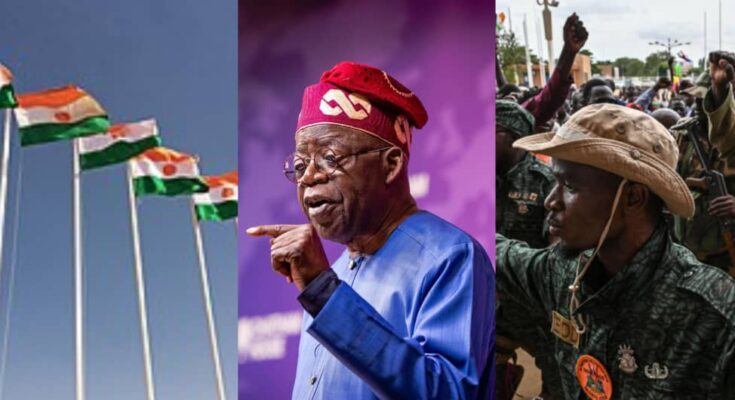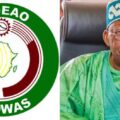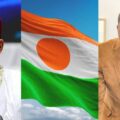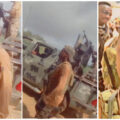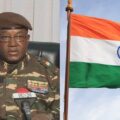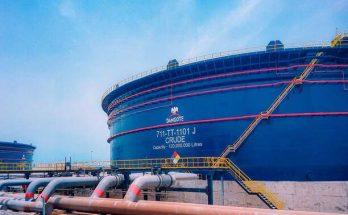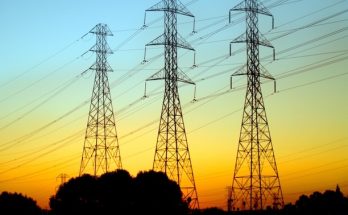In recent days, Nigeria’s President Bola Tinubu has come under scrutiny for his stance on the ongoing crisis in neighboring Niger. Tinubu’s threat to use military force to reverse the coup has sparked both local and regional debates, with concerns raised about the potential consequences of such an action. Amidst this backdrop, there’s growing emphasis on the constitutional framework that governs such decisions.
The Coup and Concerns
On July 26, a group of soldiers who were supposed to protect the democratically-elected President Mohamed Bazoum of Niger did something unexpected and caused a lot of trouble in West Africa.
Shortly after, a general named Abdourahamane Tiani, who was in charge of protecting the president, went on national TV and declared himself the new leader of Niger. He said he did this because he believed the country was being poorly governed and the security situation was getting worse. He criticized President Bazoum for saying things were fine when the country was facing problems like death, displacement, humiliation, and frustration.
This made groups like the African Union and the Economic Community of West African States (ECOWAS) very angry. These organizations work to make sure countries in Africa are stable and democratic.
Becoming a new country leader like this is a big problem for Niger. Since it became independent from France in 1960, this has happened five times already. This recent event is a big challenge for democracy in West Africa, and it also makes people wonder if ECOWAS can really control political problems in the region.
The head of ECOWAS, President Bola Tinubu, said strongly that they won’t accept actions against democracy. He promised to use all the power of ECOWAS to bring back stability to Niger and the whole area.
ECOWAS did a lot of things to put pressure on Niger. They closed the borders between Niger and other countries, stopped trading and financial activities, cut off electricity, and froze Niger’s money in their banks. But what worried people the most was the talk of using military force. President Tinubu said they didn’t want to do this if they didn’t have to. But if they run out of options and the Niger military doesn’t cooperate, they might not have a choice.
Tinubu’s proposal to employ military force to address the coup in Niger has met with strong opposition within Nigeria. Reports from local media indicate that there was strong disagreement regarding the idea of using the military to get involved in the situation during a meeting of the upper part of the parliament, called the Senate. Despite the fact that the Senate is controlled by Tinubu’s political party, many members were against the idea of military intervention.
This disagreement was particularly evident among lawmakers who represent areas along the long border with Niger, which is more than 900 miles long. But there has also been widespread disapproval throughout the country about the potential of going to war.
The regional organization in West Africa known as Ecowas had given the people who took over the government in Niger a deadline – they had until Sunday to give up their power, or else there might be military action taken against them.
Because Tinubu is currently in charge of Ecowas and Nigeria holds a lot of influence in that organization, the decision was thought to be largely influenced by him. Even though the group in charge in Niger did not listen to the deadline, Ecowas did not immediately send military forces. This was a relief to many Nigerians, who would rather see the situation resolved through mediation instead of fighting.
The military groups in Mali and Burkina Faso have promised to protect the leaders who took over in Niger if Ecowas decides to use force. This raises the possibility of a big conflict happening in the region.
Tinubu recently said that Ecowas shouldn’t be weak and ineffective. He strongly believes in democracy and thinks that it’s crucial for governance, freedom, and following laws. He mentioned that West Africa shouldn’t allow a series of coups to happen again, and this was just after he became the leader of the regional organization.
Constitutional Mandates and Deployment of Troops
Nigeria’s constitution outlines specific conditions under which the president can deploy troops, particularly in a conflict involving another country. The Constitution highlights that the president cannot declare war or deploy troops to another nation without the approval of the National Assembly. This involves both the upper and lower chambers of the parliament, in Section 4 which specifically states:
“The President shall not declare a state of war between the Federation and another country except with the sanction of a resolution of both Houses of the National Assembly, sitting in a joint session.”
“Except with the prior approval of the Senate, no member of the armed forces of the Federation shall be deployed on combat duty outside Nigeria.”
A significant point of contention arises from the requirement for parliamentary approval before deploying troops. While Section 5 provides some flexibility in deploying armed forces for limited combat if national security is under immediate threat, concerns about due process and compliance remain paramount.
The section specifically states,
“Notwithstanding the provisions of subsection (4) of this section, the President, in consultation with the National Defence Council, may deploy members of the armed forces of the Federation on a limited combat duty outside Nigeria if he is satisfied that the national security is under imminent threat or danger.”
Also Section 19(D) states that
“respect for international law and treaty obligations as well as the seeking of settlement of international disputes by negotiation, mediation, conciliation, arbitration and adjudication;”
As one of Nigerian’s foreign Policy.
Tinubu’s Personal Experience
Tinubu’s hardline stance against coups, shaped by his own experiences during Nigeria’s struggle for democracy, has made him a vocal advocate for stability and democratic governance in West Africa. However, his current push for military intervention is not without complexities and potential consequences.
Critics argue that rushing into military action might overlook historical and mutual interests between Nigeria and Niger, potentially leading to unintended regional tensions. Some influential voices have urged for cautious diplomacy and dialogue instead of a rapid military response, emphasizing the importance of preserving stability and addressing concerns collaboratively.
The Way Forward
As Ecowas leaders gather to discuss the situation, the spotlight is on President Tinubu and his dual roles as Ecowas chairman and Nigeria’s president. Balancing regional interests and domestic implications poses a challenging task. The ongoing discussions raise questions about the efficacy of military intervention, the preservation of regional stability, and the adherence to constitutional mandates.
In this complex scenario, one thing remains clear: any decision involving military force must be guided by thorough consideration of legal frameworks, potential consequences, and the broader goals of preserving democracy, stability, and peace in the region. As Niger’s future hangs in the balance, the path forward demands careful deliberation and well-informed decisions.

